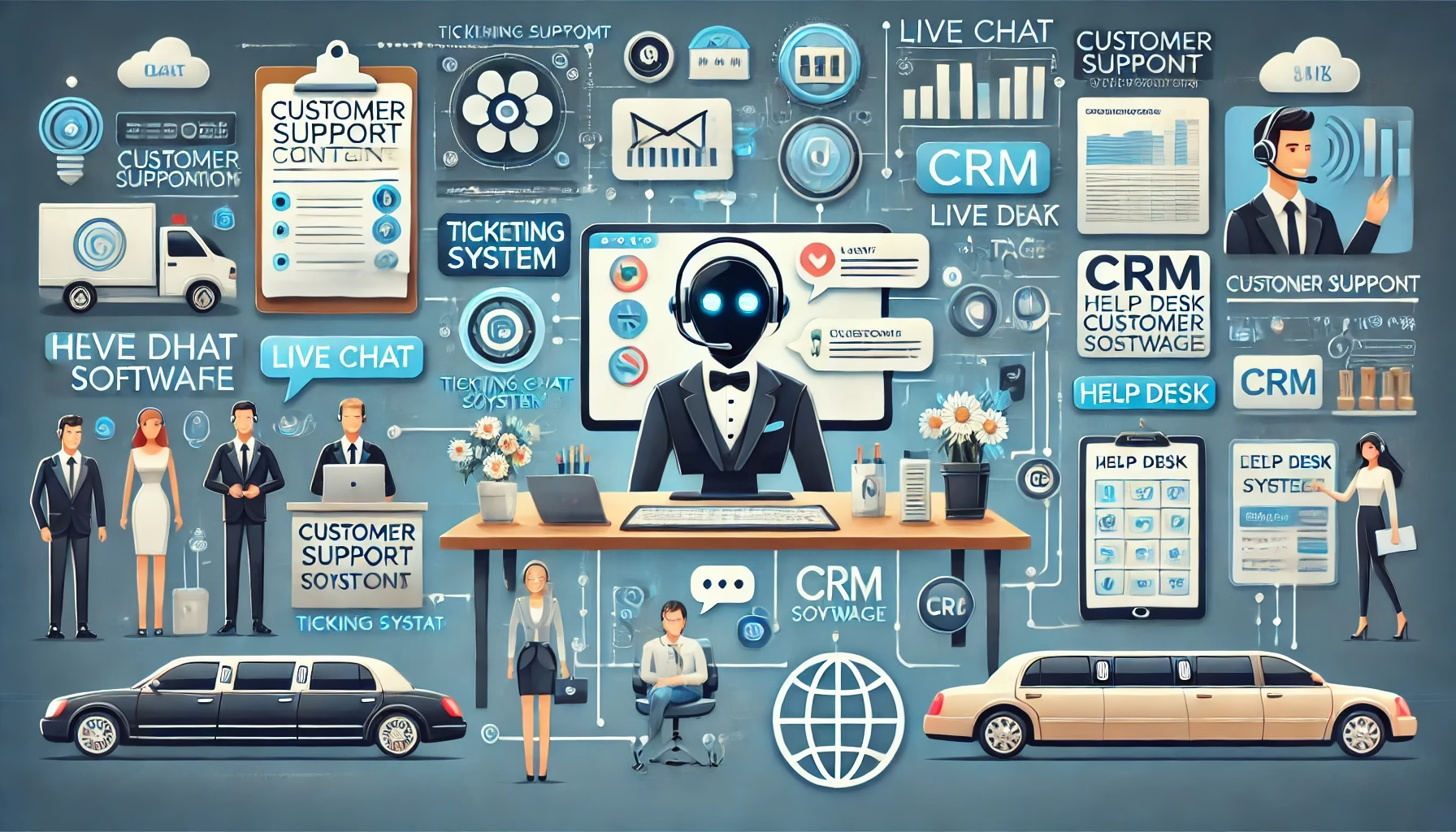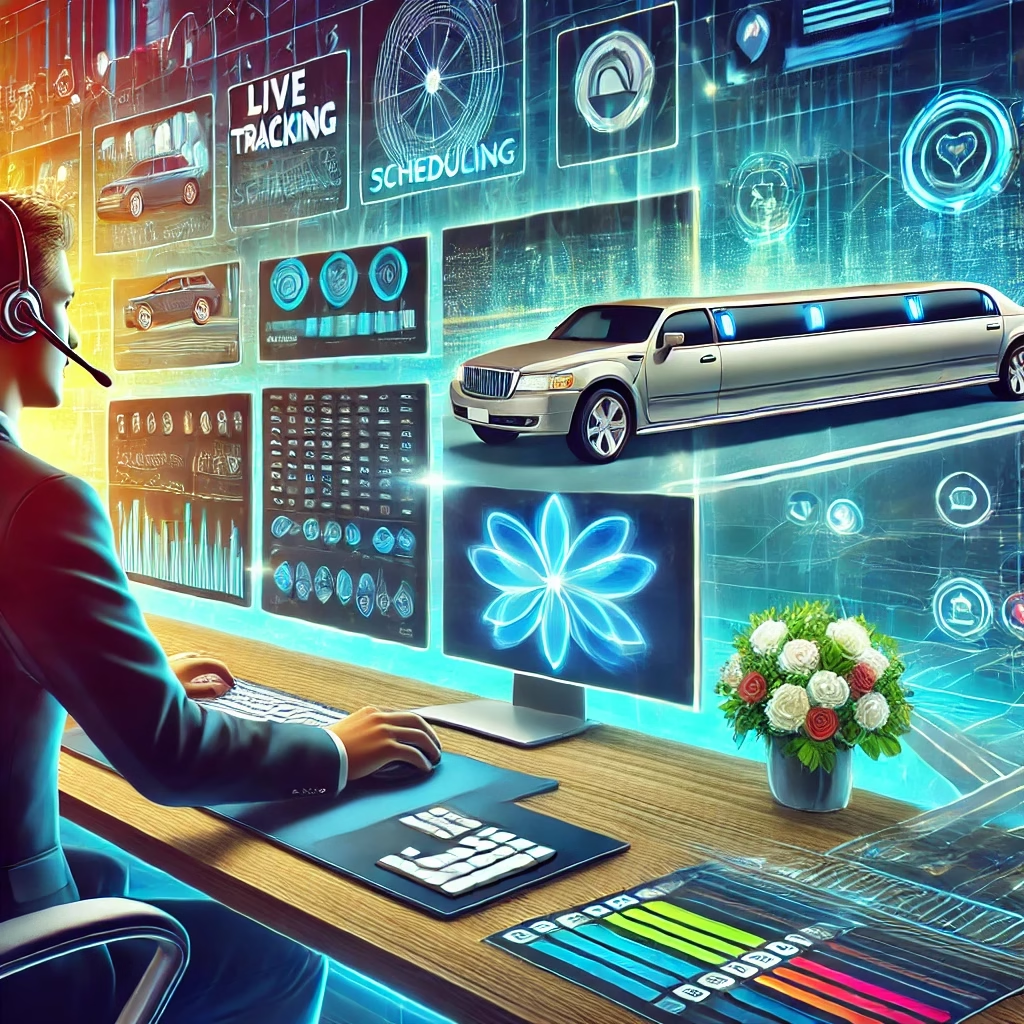Introduction: The Art and Impact of Exceptional Customer Support
In a world where customer loyalty can be fleeting, mastering customer support is essential for any company’s growth and reputation. For businesses that operate in service-intensive industries, such as limousine dispatch or tech support, the quality of customer support can make or break client relationships. This article serves as a Customer Support Guide to help businesses excel by building trust, resolving issues promptly, and ultimately fostering loyalty. With insights into core skills, challenges, and solutions, this guide offers a roadmap for dispatch and limousine services to elevate their customer support game.
1. Active Listening: The Foundation of Customer Support
The Issue:
When customers feel unheard, they may perceive the service as ineffective or dismissive. In industries like dispatch, where clients may have urgent requests or complaints, listening actively and empathetically is crucial.
The Solution:
First, train agents to practice active listening by focusing entirely on the customer’s words, pausing to ensure understanding, and responding thoughtfully. Encourage agents to take notes and repeat back key points for clarity. This approach helps avoid misunderstandings and conveys that the client’s concerns are genuinely valued.
In the dispatch industry, an active listening approach can lead to faster, more accurate resolutions, as the nuances of the client’s needs are fully understood. By making active listening a priority, support teams can improve satisfaction rates and cultivate stronger relationships with customers.
2. Empathy in Action: Building Customer Trust
The Issue:
Without empathy, customer support interactions can feel robotic and disconnected, which can lead to dissatisfaction and lost clients, especially for high-touch services like limousine dispatch.
The Solution:
To foster empathy, encourage agents to put themselves in the customer’s shoes and approach each interaction with genuine care. Offering empathetic statements, such as “I understand how that situation can be frustrating,” helps build rapport and trust. Training in soft skills, combined with role-playing exercises, can help support teams practice empathetic responses in real scenarios.
For limousine service providers, empathy can be a competitive advantage by creating a personalized experience that makes clients feel understood and valued. By instilling empathy, companies can create memorable service experiences that leave a lasting impact on customers.
3. Effective Communication: The Art of Clear and Concise Responses
The Issue:
Poor communication can lead to confusion, misinterpretation, and escalated issues, affecting client satisfaction, especially in time-sensitive services like dispatch.
The Solution:
To improve communication, equip agents with guidelines on clear, jargon-free language and provide templates for common responses. Encourage the use of positive language, focusing on what can be done rather than limitations. Role-playing scenarios can be a powerful tool for agents to practice and refine their communication skills.
This Customer Support Guide underscores the importance of clear communication in the limousine industry, where details matter. A well-communicated solution can ease concerns, reduce conflict, and ensure clients feel informed throughout the service process.
4. Problem-Solving Skills: Resolving Issues Efficiently
The Issue:
Customers expect swift resolutions, especially when they are experiencing urgent issues. Delayed or ineffective problem-solving can result in dissatisfaction and lost business.
The Solution:
Encourage agents to use a structured approach to problem-solving: understanding the issue, identifying potential solutions, and implementing the most effective one. Equip agents with resources such as knowledge bases and access to managerial support to resolve complex issues faster. Regular training in troubleshooting specific to dispatch and limousine services can also enhance problem-solving efficiency.
Mastering problem-solving can significantly improve customer retention in dispatch services, where immediate solutions are often expected. Effective problem-solving not only resolves issues faster but also reassures customers of the company’s reliability.
5. Managing Customer Expectations: Setting Clear Boundaries
The Issue:
Unclear expectations can lead to misunderstandings and disappointments, which often affect client satisfaction negatively.
The Solution:
Teach agents to set realistic expectations early in the interaction. For example, if there are limitations due to time zones or service availability, communicate these clearly. Regular updates during issue resolution also help manage expectations. Dispatch services can benefit from setting clear response times and service limitations upfront, ensuring clients know what to expect.
Proper expectation management helps avoid potential complaints and strengthens customer relationships by providing transparency, which is especially vital in the limousine industry where punctuality and reliability are key factors.
6. Personalization: Making Each Interaction Unique
The Issue:
Generic responses can make customers feel undervalued. This is especially problematic in high-touch services where personal connection is a key selling point.
The Solution:
Encourage agents to personalize interactions by using the customer’s name, referring to past interactions, and acknowledging specific details of their needs. CRM tools can help maintain customer profiles that enable agents to add personal touches to each interaction.
Personalization can be a game-changer for dispatch and limousine services, where customers appreciate tailored service. By making interactions more personal, companies can foster stronger, more loyal relationships.
7. Multi-Channel Support: Meeting Customers Where They Are
The Issue:
When companies offer limited support channels, they risk alienating customers who prefer different ways of communication.
The Solution:
Consider offering support through multiple channels such as phone, email, chat, and social media. Each channel serves a unique purpose; for instance, phone support is ideal for complex issues, while chat is better suited for quick questions. Train agents to manage multiple channels effectively, ensuring that customers receive consistent service regardless of the platform.
Incorporating multi-channel support can be particularly advantageous in the dispatch and limousine industry, where customers may need assistance on the go. Providing flexible options empowers customers to seek help in their preferred way, improving accessibility and satisfaction.
8. Stress Management: Supporting Agents to Support Customers
The Issue:
High-stress environments can lead to burnout, impacting the quality of customer interactions.
The Solution:
Encourage agents to take short breaks, practice mindfulness techniques, and provide support resources. Regular team check-ins and counseling can also help agents manage stress effectively. By focusing on agent well-being, companies can enhance the quality of their customer support.
In the demanding environment of limousine dispatch, stress management strategies ensure agents remain patient and focused, contributing to better overall customer experiences.
9. Handling Difficult Customers: Turning Challenges into Opportunities
The Issue:
Handling difficult customers can be challenging, particularly when emotions run high, which can affect an agent’s morale and performance.
The Solution:
Equip agents with de-escalation techniques and empower them with solutions to common issues. Role-playing difficult scenarios can help prepare agents to stay calm and focused. By learning to see challenging interactions as opportunities for improvement, agents can enhance their confidence and skills.
This guide emphasizes that mastering difficult customer interactions can set a dispatch company apart, enhancing its reputation for handling issues with professionalism and care.
10. Continuous Learning: Staying Ahead of Customer Expectations
The Issue:
Customer expectations evolve, and without continuous learning, support teams may struggle to keep up, which can lead to service stagnation.
The Solution:
Encourage ongoing training and workshops to keep agents updated on new tools, communication strategies, and customer service trends. Regular feedback sessions and performance reviews can help agents improve their skills.
By prioritizing continuous learning, limousine and dispatch services can ensure they stay aligned with customer expectations, ultimately enhancing service quality and competitiveness.
Conclusion: Elevate Your Customer Support with Saztech Solutions
Mastering customer support is about blending empathy, active listening, effective problem-solving, and continuous improvement. In the fast-paced world of dispatch and limousine services, these skills are invaluable for providing a superior client experience.
If you’re looking to elevate your customer and dispatch support, consider partnering with Saztech Solutions. With a dedicated team skilled in customer support best practices, Saztech Solutions can help your business stand out. Learn more about Saztech Solutions and their customer support services.
Home | About Us | Pricing | Get Started | FAQ | Dispatch Daily | Contact Us
WhatsApp | Facebook | LinkedIn





Leave a Reply